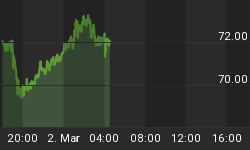Countries in the Middle East and North Africa (MENA) region have a total of US$1 trillion in committed and planned investments in the energy sector over the next five years as electricity demand grows and regional economies invest more in natural gas, petrochemicals, and renewable energy.
This is the gist of new research from the Arab Petroleum Investments Corporation (APICORP), a multilateral development bank, which has just published its ‘MENA Annual Energy Investment Outlook 2019’ with estimates for planned and committed investments between 2019 and 2023. As per APICORP, committed investments are investments in projects currently under execution, while planned investments refer to a country’s spending target.
Investments in the MENA region are expected to be nearly US$1 trillion in 2019-2023, up by 5 percent compared to APICORP’s investment outlook from last year, as the energy sector in those countries is set to see a greater transition towards gas, downstream, and petrochemicals sectors, plus significant renewable energy additions.
Of this US$1 trillion, planned investments make up the majority - US$613 billion - while committed investments in projects underway account for the rest, according to the bank.
Of all investments through 2023, the largest share - 36 percent or US$348 billion - is set to be spent in the power sector, followed by the oil sector with US$304 billion in upstream, midstream, and refining investments, US$138 billion of which are committed investments. Investments in the gas sector across the MENA region are set to reach US$186 billion, of which US$87 billion are in committed investments. The petrochemical sector will see investments exceeding US$123 billion, including US$33 billion in projects underway. Related: The Index Investors Need To Watch In This Oil Rally
Unsurprisingly, Saudi Arabia has the largest amount of planned and committed investments in the energy sector between 2019 and 2023 - US$148 billion - of which US$37 billion are committed and US$111 billion are planned investments.
Outside of the Gulf Cooperation Council (GCC), Iraq is focused on rebuilding its energy infrastructure, while Egypt is expected to prioritize investments in the upstream gas sector and in the power sector to meet growing demand, APICORP said.
Within the GCC - which includes Saudi Arabia, Kuwait, the United Arab Emirates, Qatar, Bahrain, and Oman - the value of planned and committed projects has declined as large projects are already coming online.
APICORP noted that “As a word of caution, many governments in the region tend to announce ambitious targets, then scale back projects over time.”
Total expected investment in the oil sector in the GCC dropped by US$33 billion from the 2018 outlook to US$156 billion in this year’s outlook.
Related: Is A Gold Breakout Near?
Referring to the MENA region, APICORP said that “investments in several OPEC member countries have been scaled back, including Saudi Arabia, Iran and Algeria. Whilst Iraq, the UAE and Oman have ensured y-o-y growth in upstream oil spending, higher global production and slowing global demand have affected the need for additional supply of crude and products.”
“In contrast, petrochemicals and refining, and certainly the power sector, contributed positively to the outlook period compared to last year, as countries look to enhance their energy security through more diversified electricity generation and maximise the value of hydrocarbons throughout the supply chain,” the outlook said.
Across MENA, the share of the private sector financing has increased to 22 percent from 20 percent in the previous outlook, with Tunisia and Morocco’s private sector financing at 68 percent. Among the biggest regional oil producers, only the UAE has a significant private sector penetration at 30 percent.
“While all MENA countries continue to push on with investment in the energy space, there will be several challenges and constraints over the medium term. We see the private sector as a critical player in financing the region’s energy investment plans going forward, while freeing up revenues for other areas in the economy,” APICORP’s chief executive Ahmed Ali Attiga said.
Yet, private finance has not taken as big of a share as had been expected, according to the bank, because “the balance between government and private sector investments continues to be driven by cyclical factors – namely oil prices, which recovered in 2018.”
By Tsvetana Paraskova for Oilprice.com
















